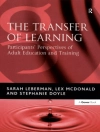‘Mobile Teachers, Teacher Identity and International Schooling focuses on the increased mobility of teachers and curriculum and what it means for the expansion of international schooling. In the early 21st century, educational institutions have been transformed by technological innovation and global interconnectivity. The demographic, ideological, economic and cultural flows that integrate local and global interconnections have consequences for the ways in which educational policy, theories and practice can be understood and take place locally. The everyday lives of practitioners, parents and students; the institutions in which they are educated and work; and the sociocultural and ideological contexts in which they work, are all consequently changing. The manifestation of these changes – as evident in the work and lives of teachers within specific cultural contexts and education systems; in their implications for educational theory and methodology; and their consequences for policy, programs, practice and research in education – are the focus of this book. This book explores the mobility of curriculum, pedagogies, ideas and people that represent and mediate the impact of Global uneven flows and movements through, in, and for school education, and the concepts and practices which frame that transformation. The particular focus of the book is on how these flows inform the ways individuals negotiate their identities, cultures and languages in different national and educational contexts. Education systems and the educational experiences offered by schools are being reconfigured due to multiple pressures. What do these moves to mobilise and to work transnationally mean in terms of educational provision, possibilities and practice?’
İçerik tablosu
Preface; Introduction; Mapping Internationalisation in Schools: Contingency and Ad-hoc Development; Mobile Curriculum: Elite Schools in Asia and Their Globalising Curriculum; Teachers’ Negotiation of Professional Identities in the ‘Contact Zone’: Contradictions and Possibilities in the Time of International Student Mobility; The Exhilaration of Being ‘Not-at-home’: Tourist Teachers and the Negotiation of Identity, Difference and Belonging; Global Nomads: TESOL Teachers in the Shifting World; Who Gets the Best Teachers?: The Incorporation of the IB Program into Public High Schools and Its Impact on the Teacher Labour Market in Ecuador; Mobility and Local/International Knowledge Co-production: Innovation in the Post-monolingual Learning of Chinese; ‘Portable Personhood’: Travelling Teachers, Changing Workscapes and Professional Identities in International Labour Markets.












